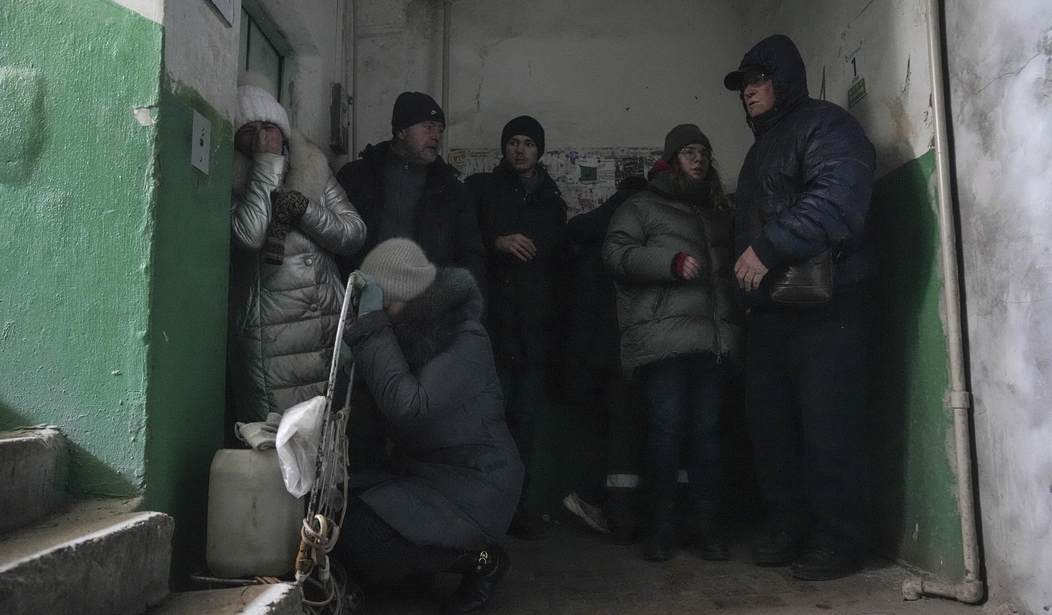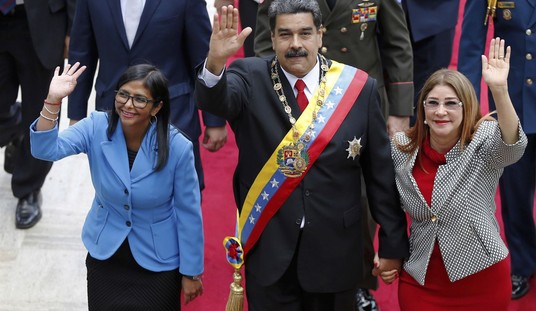As the conflict in Ukraine enters its second month, distraught members of the public are bound to ask: “when will the war end?” The honest answer is nobody knows. The actual war in Ukraine may last for months or years; the greater Cold War II of which it is the first skirmish will likely continue for decades, even beyond the lifetime of those reading these words. And it is likely to become more brutal. The heartrending scenes of combat and siege, as with Mariupol, repeat what history endlessly teaches: as combat drags on everyone’s behavior gets uglier, the dispatches from the front less truthful, the choices more cruel as people in their multitudes struggle to survive if only for one minute more. The last shreds of peactime civility cease to moderate behavior and civilization enters a dark hole, from which we hope — but only hope — to God to emerge from someday.
The depth of that pit has no inherent limits. The demand for bunkers, iodine pills, and canned food is back along with the fear of a nuclear Apocalypse. In this atmosphere pundits are torn between denouncing Putin and humoring him, depending on whether indignation or fear rules that day. “Russia’s foreign ministry said on Monday it had summoned U.S. Ambassador John Sullivan to tell him that President Joe Biden’s calling Russian President Vladimir Putin a ‘war criminal’ had pushed bilateral ties to the brink of collapse,” Reuters reported. This exemplifies the administration’s difficulty in pursuing two simultaneous and potentially contradictory goals: how to stop Putin while not riling him sufficienly in the process to start a nuclear exchange.
Complicating Biden’s calculation is an inherent asymmetry in perception. Unlike Joe, Putin’s political and probably physical life is staked on “victory” in Ukraine — in that sense Vladimir has more in common with Volodymyr Zelensky than the man in the White House. That makes Putin unpredictable while all the while the world is in a strange situation of hanging on the thought processes and moods of this one tormented mind. The problem is there’s no way of definitely gaming Putin’s responses. The West can avoid making obvious escalatory moves, but not the unintended nor unforeseen ones. Biden understandably had to speak to his public and excoriate the Russian president; but was calling Putin a war criminal risky? Perhaps no more than not denouncing him; when dealing with a single individual opponent, everything is unpredictable to a degree, degree being the operative word.
Consider how many miscalculations both sides have already made to get us to this point; inevitably as we miscalculated in the past so we will in the future. Bearing this in mind, the West’s grand strategy ought to build fault tolerance and focus on the basics. The obvious place to start is to get the energy house in order, the borders under control, and the critical industries back where they belong. Washington ought to plan as if it’s going to be a long war, not something that will be settled before the midterms.
The Guardian called the Biden administration the “cursed presidency” and that’s not probably not just due to bad luck. Historically, disaster came in flurries. In the bible they are called conquest, pestilence, famine and death — the Four Horsemen of the Apocalypse. The secular explanation for this clustering is that disaster begets disaster. Society runs out of design margin. Things fall apart. Imagine if politicians squandered public money, closed down domestic energy industries, and bought instead from despots who used the funds to prepare for Conquest. Imagine further a Pestilence out of China wrecking the supply chain; then War could break out on a weakened world and ruin the wheat harvest and unleash Famine. You would have the Four Horsemen complete. Alas no one might notice as long as Washington got the Iran nuclear deal.
In a manner of speaking we can answer the question “when will the war end” not in terms of specific dates but in general conditions: the sooner we rebuild the design margin, the sooner we prepare the defense, the sooner we stop being stupid, the sooner the world will begin to heal.
Books: The Strategy of Denial: American Defense in an Age of Great Power Conflict by Elbridge A. Colby. He was the lead architect of the 2018 National Defense Strategy, the most significant revision of U.S. defense strategy in a generation. Here he lays out how America’s defense must change to address China’s growing power and ambition. Based firmly in the realist tradition but deeply engaged in current policy, this book offers a clear framework for what America’s goals in confronting China must be, how its military strategy must change, and how it must prioritize these goals over its lesser interests. The most informed and in-depth reappraisal of America’s defense strategy in decades, this book outlines a rigorous but practical approach, showing how the United States can prepare to win a war with China that we cannot afford to lose—precisely in order to deter that war from happening.
NukAlertTM Nuclear Radiation Detector/Monitor (Keychain Attachable) Alarm. Always “ON” 24/7, Includes long-life 10+ year battery. Detection Range: 100 mR/hr to 5,000 R/hr, Gamma and X-rays from 20 keV to above 2 MeV. 2 year regular warranty, 10 year prorated warranty. Meets DoD EMP immunity standards. Made in the U.S.A.










Join the conversation as a VIP Member